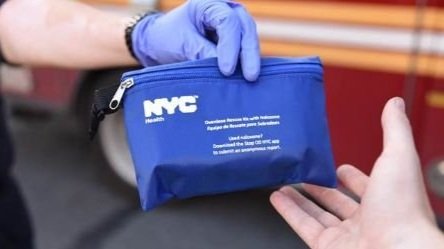
New: COVID-19 Percent Positivity No Longer Available
(updated on Aug. 18th 2023)

-
• Center for Disease Control (CDC) Guidelines
• New York State Dept. of Health
• Dr. David Price: Empowering and Protecting Your Family During the COVID-19 Pandemic
• Legal Resources for Parents Involved with Family Court During COVID-19
• Coronavirus Mitigation Strategies
• Coronavirus Resources in NYC
• Coronavirus Information for Transgender New Yorkers
• Covid-19 Resources for People with Disabilities
• NYS Office of Mental Health Emotional Support Hotline: 1-844-863-9314
• I’Raise Hotline for Emergency and Community Resources: 1-888-472-4738
• Public Places to Workout in the Bronx
• Domestic Violence Hotline: 212-453-9618
• Domestic Violence Text Line: 917-540-0225
-
-
• NYC Health & Hospitals Appointment/Testing Number: 1-844-692-4692
• Number for Free COVID Testing at St. Barnabas Hospital: 718-960-3730
-
-
• NYS Office of Mental Health Coronavirus Stress Tips
• NYS Office of Mental Health Emotional Support Hotline: 1-844-863-9314
• Mental Health and Emotional Support Resources for COVID-19
-
-
-
-
• Temporary Work Opportunities in NYC
• Access Training Opportunities for New Careers
• Coronavirus in the Workplace Guidelines
• How Coronavirus Could Impact Your Business Insurance
• NYC Small Business Continuity Fund
• The Employee Retention Grant Program
• Dr. David Price: Empowering and Protecting Your Family During the COVID-19 Pandemic
General Guidelines for Coronavirus Prevention:
Source: NYC Council Member Andrew Cohen
Guidelines for everyone:
Stay home as much as possible.
When you leave the house wear gloves (ideally from a fabric that is water-resistant.) Remove these gloves only when necessary, and disinfect them as often as you can.
Purchase groceries in bulk to last you longer and reduce the frequency of grocery shopping, but be considerate of the needs of others when shopping.
For food deliveries and grocery runs, disinfect the outside of the packaging and bags when possible.
For deliveries, order in large quantities if possible to minimize the handling and packaging.
Wipe down the outside of boxes with Lysol wipes, and a solution containing bleach, or any disinfectant. Discard outer packaging when possible.
Also, wipe down the individual items when unpacked.
Do not have visitors over to your home and do not plan playdates, or social interactions unless they are absolutely necessary.
Wash your hands frequently with soap for 20 seconds each time and avoid touching your own face or the faces of your family members with your hands.
If you are sick stay home, and self-isolate by keeping 6 feet away from any family member.
Frequently, at regular intervals, disinfect high-contact surfaces in your home such as fridge doors, kitchen counters, bathroom sinks, and door handles.
If you are an essential worker and are physically going to work:
Walk, bike or drive when it’s possible. If you are taking public transportation take extra precautions to avoid touching high contact surfaces.
Wear outerwear that covers you for the commute, and remove immediately on arriving at home or work.
Wash your hands for 20 seconds with soap before leaving your home and after arriving at your workplace.
Stay 6 feet from other people as much as possible.
If anyone in your work space shows any respiratory symptoms please direct them immediately to cover their nose and mouth to keep from spreading respiratory secretions by coughing and sneezing
After any person comes into contact with your desk or the surfaces immediately around you, disinfect the surfaces.
At regular intervals throughout the day, disinfect high contact surfaces in your workplace such as door handles, elevator buttons, surfaces in the bathroom or at a check-in desk.
After entering your home, before physically contacting any family member, or surface in your home, proceed directly to the shower and bathe head to toe using soap and shampoo
Bag your work clothes to wash separately on high heat and change into clean clothes.
Frequently, at regular intervals, disinfect high contact surfaces in your home such as fridge doors, kitchen counters, bathroom sinks and door handles.
If you are sick stay home, and self-isolate by keeping 6 feet away from any family member.
Wash your hands frequently with soap for 20 seconds each time and avoid touching your own face or the faces of your family members with your hands
Supplying Essential Services to the Bronx
We are continuing to offer most of our regular programs, with adjustments made for social distancing.


Feminine Kits
All women deserve access to feminine hygiene products. To help with this, we are distributing free feminine kits which include tampons and pads.
Grab & Go Meals
Offering free pre-packed meals has allowed us to continue feeding our community while allowing for social distancing regulations.


Safe Sex Kits
One of the consequences of the COVID-19 pandemic is that protective resources can be more difficult than usual to find. We are committed to filling the gap.
Personal Protective Equipment
Many marginalized populations, especially the homeless have a harder time accessing PPE, which puts them at greater risk for infection. We provide access to these resources.

Overdose Prevention
With healthcare resources strained by COVID-19, overdose is an even greater danger. Every day we provide lifesaving materials and training to combat this epidemic.

Remote Counseling
We are leveraging technology to allow our case managers to stay in contact with our participants despite social distancing.

Neighborhood Outreach
Our efforts began on the streets 30 years ago, and we continue to send teams out to offer free supplies, information, and other resources to community residents.

Syringe Access Services
Providing life-saving harm reduction equipment to our community directly prevents a spike in HIV and hep C cases, along with other infections.